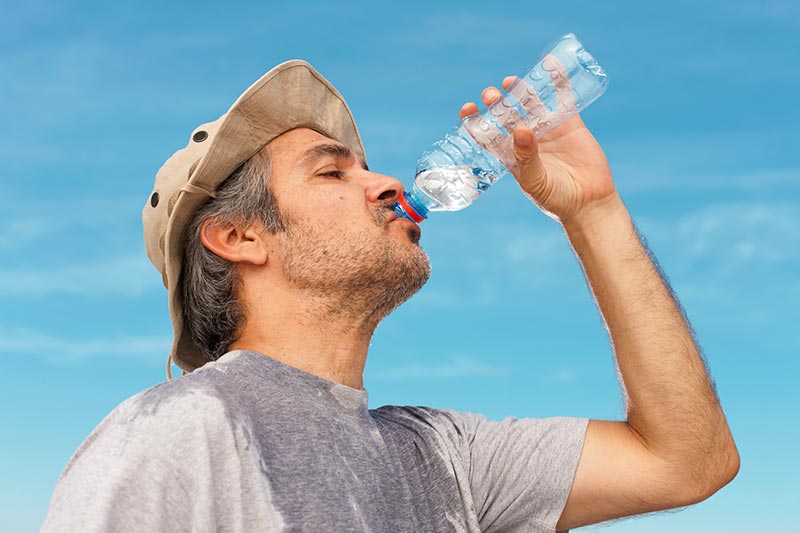
While summer is the season filled with vacations, outdoor outings, and barbecues, it also comes with an often overlooked danger: heatwaves. As we age, we slowly lose the sense of our body temperature, which means that seniors pose a higher risk of heat-related illness. In order to make sure you’re staying safe and healthy this summer, here are some tips for keeping cool —even when the thermometer climbs into triple digits.
1. Minimize your sun exposure
One of the easiest ways to reduce the threat of danger from the sun is to minimize your exposure. Seniors have a higher risk of overheating, getting sunburnt and of skin disease. Exhaustion, too, is a risk in the summer, so stay away from being overly active and avoid situations in which you’ll be outside for too long. When temperatures rise, plan to spend most of your time in the shade and indoors away from open windows. Also, if you do end up going into the sun, be sure to wear sunscreen — and remember to carry some with you for reapplication.
2. Drink lots of water
Another good reminder for hot days is to remember to stay hydrated – advice especially important for seniors, as they tend to lose fluids faster than any other age group. Carry a water bottle with you and refill it as soon as you drink through it. Pro tip: Fill it with ice-cold water to cool down your core at the same time.
3. Pay attention to your windows
Even if you stay inside on the days most anticipated to be scorchers, you’ll want to make sure you’re monitoring your temperature indoors, too. There are some simple tricks to making sure your home stays cool throughout the day and most of this is achieved through your windows. Open your windows up at night and in the early morning to let cool air in. Opening multiple windows and doors creates a cross breeze that helps with air circulation. As the day stretches on into the afternoon, close your windows and draw your shades to protect against the sun’s rays. This helps trap the cool air inside and keep your house from getting too hot from the sun. If you don’t already have one, consider investing in an air conditioning unit.
4. Dress with the sun in mind
If you do end up going outside, make sure that you’ve taken a moment to consider your clothing with a critical eye for its sun protection. The best advice is to wear clothing that is light colored and made of a breathable material such as cotton. Don’t leave the house without a hat and sunglasses, as these are extra defenses against the sun.
5. Know the signs of heat exhaustion and heat stroke
One important thing you can do to protect yourself from the dangers of heat is to learn the symptoms of the two most common heat-related illnesses: heat exhaustion and heatstroke. Headache, fatigue, excessive sweating, light-headedness, and nausea are all signs that you should take action to address a heat-related problem before it becomes too serious. If you notice these symptoms in yourself or a friend, drink water, find a cool place to rest, and consider consulting a physician. If the symptoms get worse, call 911.
The sun and rising temperatures don’t have to put a damper on your day. All you have to do is take a few precautionary measures, and you’ll be in a better position to safely enjoy your favorite summer activities.
